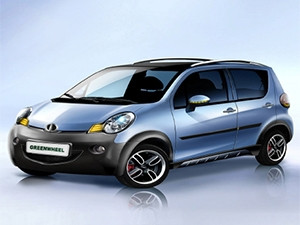
South African-based company, Big Boss is set to unveil an electric car in the next six months.
The manufacturing of the "Big Boss" car will initially be in China and the company envisages bringing production to SA after selling the first 1 000 units.
SA's first commercially available fully electric car, the Nissan Leaf, went on sale in 2013.
Speaking to ITWeb, Rishiden Samraj, founder of Big Boss, said the car will retail for between R250 000 and R300 000, and it will come in different ranges covering different distances per charge. Recharging the battery will not exceed R20, depending to the power of the battery, he continued.
He said as new technologies and methods keep emerging frequently in the natural gas industry, the company aims to develop and apply increasingly sophisticated technologies to improve the efficiency, cost-effectiveness and environmental soundness of the alternative fuel-run vehicles.
Electric vehicles produce, on average, 100% less carbon monoxide and 100% less non-methane organic gas than traditional fuel-powered vehicles, which has led to an increase in their demand, he pointed out.
According to Samraj, transport emissions are growing globally, with severe externalities associated with not only emissions but with the entire sector. It is estimated the costs of such externalities to be approximately R34 million to R55 million a year, he added.
"The impact of vehicle emissions on human health, particularly pollutants such as particulates, sulphur dioxide and nitrogen oxides in urban areas, is estimated to cost around R10 billion per year."
There are several electric car projects in SA that have failed to take off, such as the Joule. However, Big Boss believes their offering will succeed thanks to advances in technology.
Nonetheless, Samraj believes charging stations for the car will be a problem in SA although the company has started engaging with the Department of Transport on the issue.
Big Boss anticipates that there will be approximately 5 500 charge points in the country, thereby creating employment for approximately 28 500 people per seven persons per charge station. Samraj adds the station will also have a shop just like service stations and it will take 20 minutes to fully charge the battery.
In terms of the inclusion of dealerships including workshops, an estimated 10 500 job opportunities are being created, said Samraj. "In total, we estimate a total of 49 000 new jobs will be created."
In the event of load shedding, the company suggests that a solar system or back-up generators would be installed.
Share